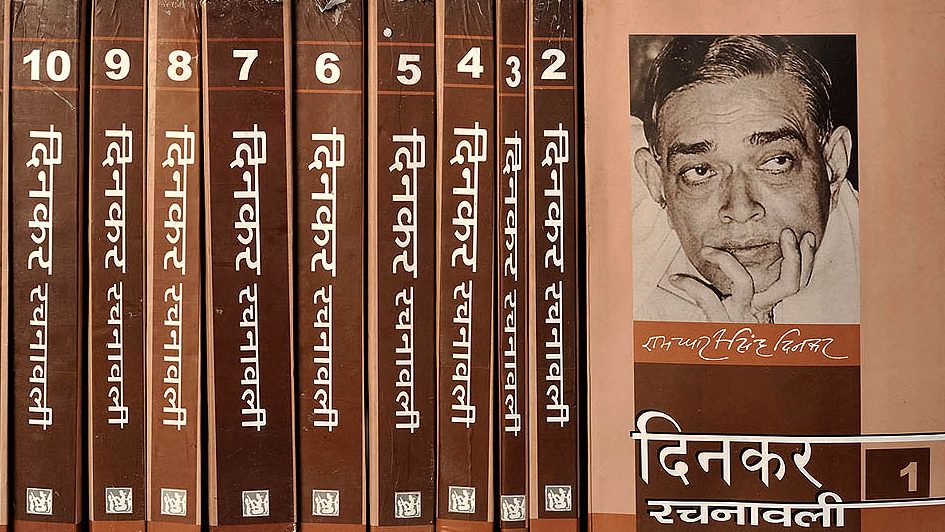Dear Dadu,
I see exactly what you mean: most intolerance is indeed rooted in arrogance, stupidity and greed.
So how can there be things of which, without being arrogant, stupid and greedy, we should really be intolerant?
Love,
Shanti
Dear Shanti,
 Well, to start at the most obvious place, we shouldn’t tolerate suffering, disease and ignorance when these may be avoidable – whether in our own lives or in the lives of others!
Well, to start at the most obvious place, we shouldn’t tolerate suffering, disease and ignorance when these may be avoidable – whether in our own lives or in the lives of others!
But the fact is that dominant ideologies in our country do teach that suffering, disease and ignorance, at least among the lower castes, should be tolerated, and even be recognized as being fair and just punishment for sins in some supposed and unknown previous lives.
In fact, all wrong and false ideas that hold our country back should not be tolerated. Sometimes the validity or invalidity of these ideas is difficult to determine, and then of course we have to wait till we are sure about which side of the divide any particular idea falls.
But, while keeping in mind that we don’t know all truth, we also have to keep in mind there are things we know to be true, as well as things we know to be untrue. If we know something to be true, that knowledge carries the obligation to champion what we know to be true. Contrariwise, if we know something to be untrue, that knowledge carries the obligation to fight or at least resist what we know to be untrue. Any insistence on confronting the truth (Satya) includes an insistence against untruth (Asatya), whether about God or the world, about international politics or our own society – about our surroundings as well as about our neighbours and family, and most importantly about ourselves.
Certainly, we shouldn’t tolerate government policies that continue to systematically disadvantage our country – such as those that don’t guarantee a good education and a good health system for everyone in the country. The logic of such things can be seen immediately by everyone. But of equal importance are bad things that take longer to explain, such as the existence of subsidies for industries, and lack of progressive taxation of the rich and the largest or most profitable companies.
Then, as a society or a nation, we shouldn’t tolerate corruption, because it is the single biggest thing that prevents our country from making as much progress as it should. Similarly, all that is counterproductive is a continuous brake on progress. For example, casteism and all that supports it, whether Khap Panchayats or structures such as RSS.
Some self-examination
Consider also that my own laziness shouldn’t be tolerated by me. I am not referring only to physical laziness, such as sitting or lying about doing nothing. I am also referring to emotional laziness, when I don’t exert myself to feel the pain of others or to put myself in the shoes of others so that I see things also from their point of view. Then there is also spiritual laziness, when I don’t exert myself to find what is true and good and beautiful or when I don’t exert myself to search after God or walk with God. Finally, there is mental laziness – avoiding curiosity and learning about the world, whether nature or art, literature or history, social traditions or political arrangements.
My own love of comfort shouldn’t be tolerated by me. Well, let me be precise: there is a sense in which we should seek to be comfortable (there is no advantage in remaining merely uncomfortable!). But my desire for comfort sometimes compounds my laziness and prevents me from exerting myself to change what should be changed in our politics or society or family situation, or even in our personal lives.
But the fact is that, as the poet T.S. Eliot once put it, human beings cannot bear very much reality. That is why unrealistic movies are so popular not only in our country but also in many countries abroad. Countries that don’t have Bollywood have their equivalents such as Hollywood and opera. That is also why our newspapers, magazines and TV shows put so much emphasis on distractions from reality, such as sensationalism, sports and astrology. In other words, things that are escapist or even good, such as entertainment (which is useful and necessary in one’s life as rest, as relaxation, as refreshment between bouts of activity) can come to have so large a place as to prevent us from seeing important things and putting in effort in relation to important things.
Dear Shanti, I hope you see there is very much of which we should rightly be intolerant, and there are things about which we should be tolerant. In our nation, in our culture, we often tolerate what is wrong and don’t tolerate what is right.
Love,
Dadu
(Published in the January 2016 issue of the FORWARD Press magazine)





